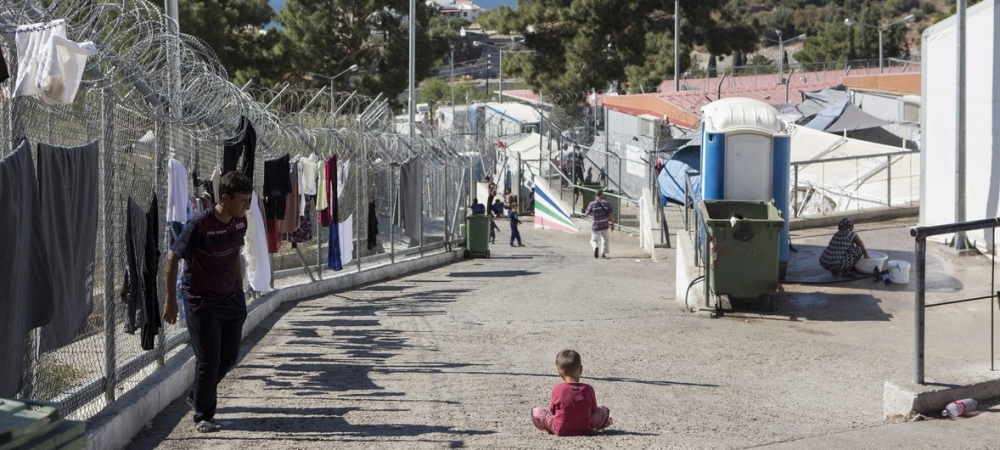Overcrowding of refugee reception centres in Greece pose serious risk to children

Overcrowding in Greek island reception centres for refugees and migrants has made the conditions for children there increasingly “dire and dangerous”, the United Nations Children’s Fund (UNICEF) said on Friday.
The influx of migrants seeking refuge on Greek Islands has risen by one-third since last year, and approximately 80 per cent of the 20,500 migrants and refugees are being sheltered in “unsanitary, overfilled” centres, according to Lucio Melandri, UNICEF Country Coordinator in Greece.
Greek law states that refugees and migrants can only spend a maximum of 25 days in a Reception and Identification Centre, but despite the best efforts of the authorities, some children are spending more than a year completing arrival procedures.
Despite the “tremendous goodwill and commitment” of the Greek authorities and people, migrants continue to arrive on the islands in numbers that the centres are not able to handle. UNICEF Country Coordinator in Greece explains the severity of the overcrowding:
“With the capacity to host 3,100 people, the centre in Moria as of today hosts nearly 9,000 people, including more than 1,700 children,” he said. “The centre in Samos that was built for 650 people, now has 680 children, with a total of more than 4,000 people.”
According to UN refugee agency, the majority of the arrivals on the Greek islands so far this year have come from Syria (32 per cent), Iraq (20 per cent) and Afghanistan (19 per cent). The reception centres continue to take in new families and children everyday but still do not have the capacity, staffing, or space to accommodate everyone safely.
In order to relieve these islands of some of the pressures and overcrowding they are facing, Melandri suggested that other EU States could help by pledging more resettlement places for children as well as speeding up the family reunification process.
UNICEF has supported refugee and migrant children and their families in Greece since mid-2016 and continues to support the efforts to resolve the migrant crisis on these Greek islands.
The AIDF Global Summit will return to Washington in 2019
If you’d like to stay informed on the latest updates in aid and development, please sign up for the AIDF newsletter.
Photo credit: UNHCR/Yorgos Kyvernitis















